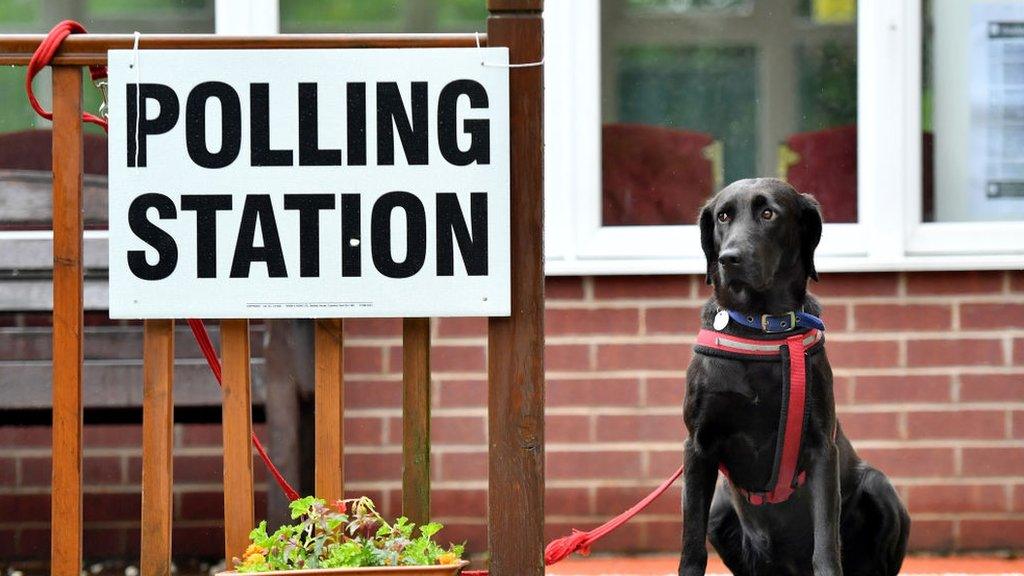General election 2019: Brexit - where do the parties stand?
- Published
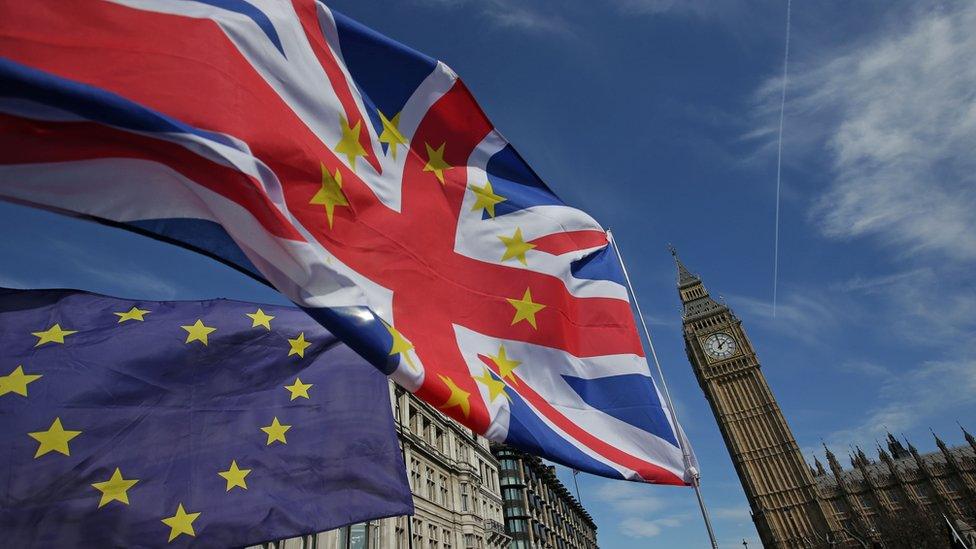
The government's Brexit legislation is on hold as the UK gears up for the general election on 12 December.
But where do the parties stand on Brexit?
Conservatives
Prime Minister Boris Johnson wants the UK to leave the European Union (EU) with the revised deal he agreed.
He says that with a majority Conservative government, he would start the process to "get Brexit done" on day one, external of the new Parliament.
He previously said the UK would leave on 31 October "do or die".
However, Mr Johnson was forced to write a Brexit extension letter to the EU, after MPs failed to approve his revised deal.
Mr Johnson secured changes to the deal previously negotiated by Theresa May. It includes scrapping the controversial Irish backstop and replacing it with a new customs arrangement.
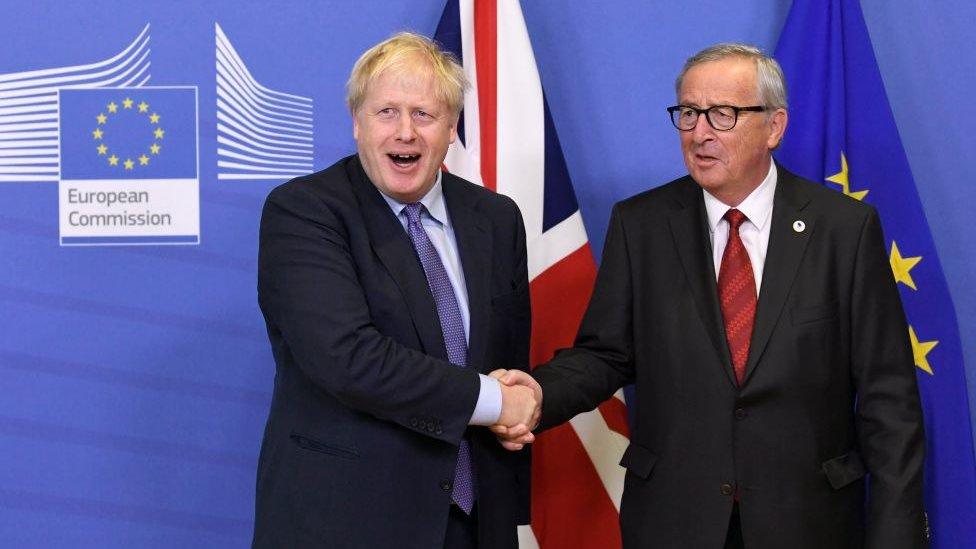
Boris Johnson's revised Brexit deal has not yet been approved by the UK Parliament
Brexit left the Conservative Party heavily divided, with 21 MPs expelled for failing to follow the government's line. Ten were later welcomed back.
Labour
If it wins the election, Labour wants to renegotiate Mr Johnson's Brexit deal and put it to another public vote. It says it will achieve this within six months.
Labour says its referendum would be a choice between a "sensible" Leave option versus Remain. , external
Under its Leave option, Labour says it will negotiate for the UK to remain in an EU customs union, and retain a "close" single market relationship.
This would allow the UK to continue trading with the EU without checks, but it would prevent it from striking its own trade deals with other countries.
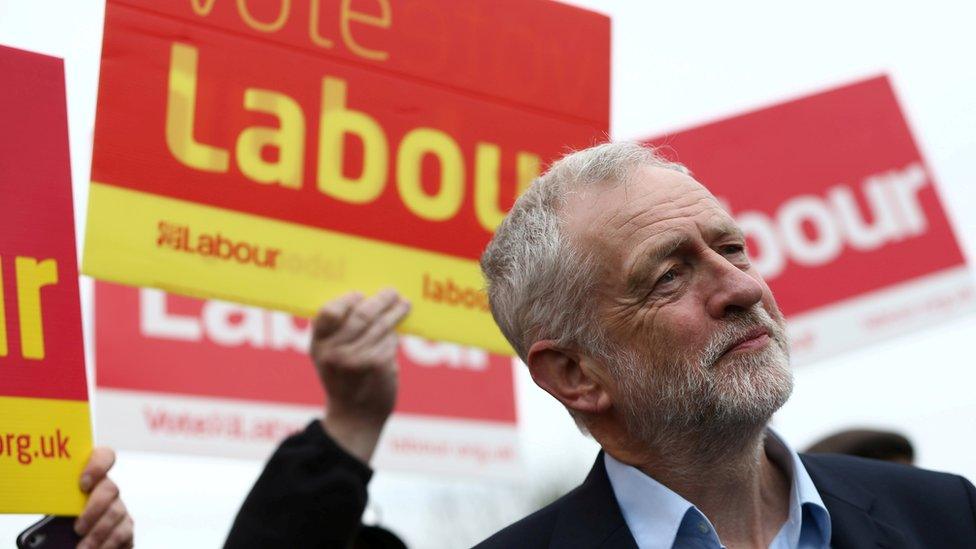
If a referendum was held, Mr Corbyn has said he would remain neutral if he was prime minister "so I can credibly carry out the results".
Just like the Conservatives, Labour has had to deal with internal divisions over its Brexit policy. More than 25 Labour MPs wrote to Mr Corbyn in June, saying another public vote would be "toxic to our bedrock Labour voters".
While Labour's election strategy early on was to emphasise that the vote was about more than Brexit, it is changing its focus.
The message now is that Labour's leadership is not opposing Brexit by opposing Mr Johnson's deal - it wants to find what it believes is a better one.
SNP
The SNP is pro-Remain and wants the UK to stay a member of the EU.
It has been campaigning for another referendum, external on Brexit. Alternatively, it wants Article 50 revoked if it is the only alternative to a no-deal Brexit.
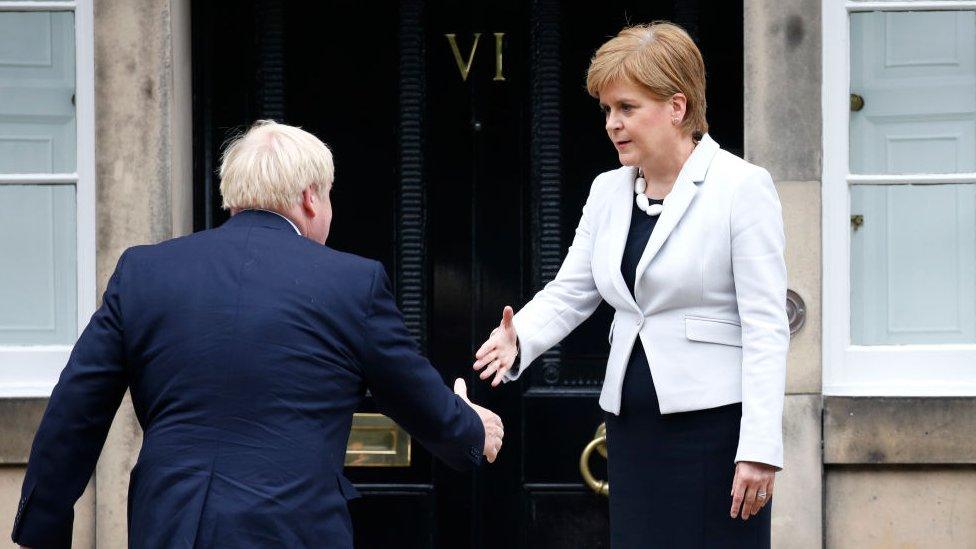
Scotland's First Minister, Nicola Sturgeon, said the possibility of a no-deal Brexit is "catastrophic"
The SNP's ultimate objective is for an independent Scotland that is a full member of the EU.
Liberal Democrats
The Liberal Democrats have pledged to cancel Brexit if they win power at the general election.
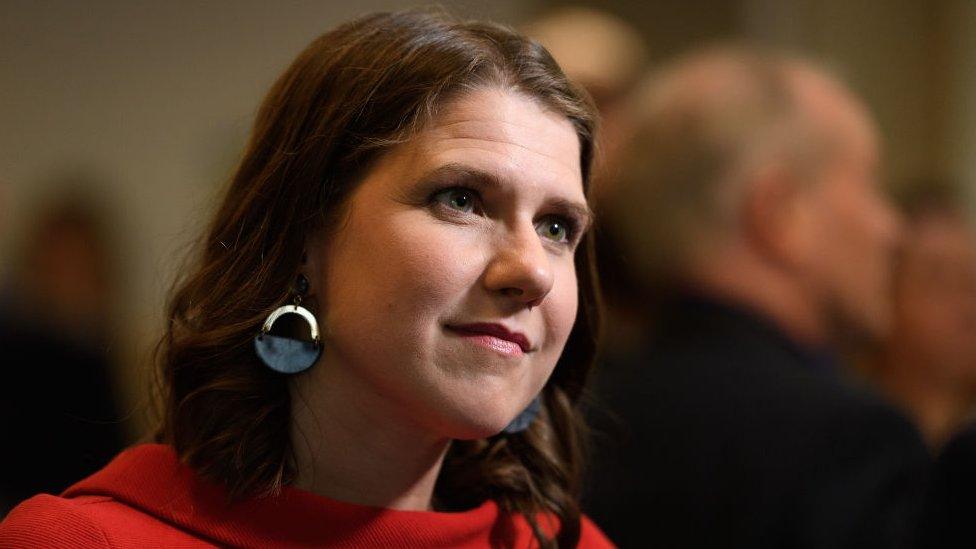
Party leader Jo Swinson says a Lib Dem majority government would cancel Brexit
The policy was endorsed in September by party members at the Lib Dem party conference.
If the Lib Dems do not win a majority, they would support another referendum.
Leader Jo Swinson says that stopping Brexit would free up £50bn, over five years, to spend on public services.
She says that so-called "Remain bonus" would pay for 20,000 new teachers, extra money for schools and to help support low-paid workers.
Democratic Unionist Party
The Democratic Unionist Party (DUP) had an agreement with the Conservatives whereby it lent it support in the Commons during the last Parliament.
However, while the DUP wants the UK to leave the EU,, external it opposes elements of Mr Johnson's Brexit deal which relate to Northern Ireland,.
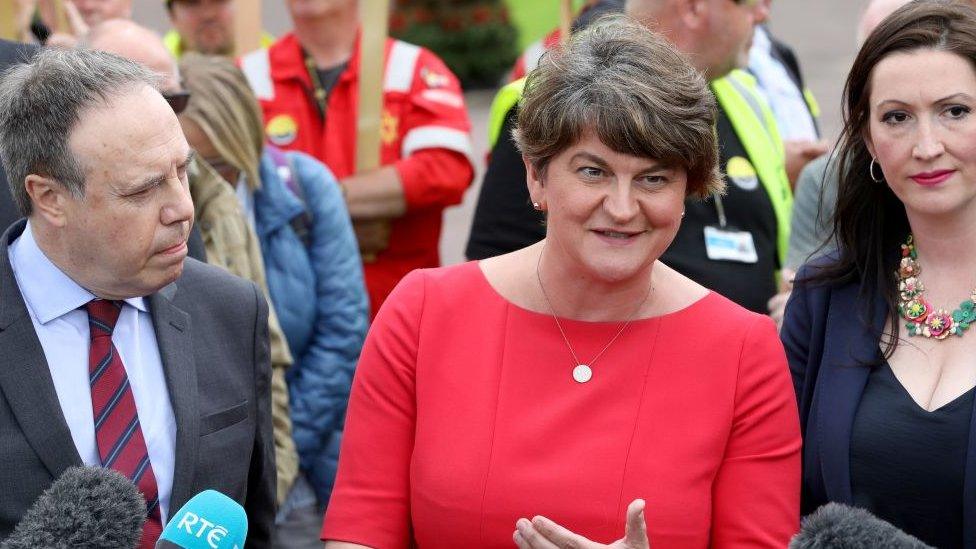
The DUP is unhappy with the revised Brexit deal
At its manifesto launch, the party said it will seek further changes to the deal if he is still prime minister after the election.
The deal includes special arrangements for Northern Ireland. One gives the Northern Ireland Assembly a majority vote on how customs arrangements would work after Brexit.
The DUP wants such a vote to be taken on a cross-community basis, rather than a straight majority.
The Independent Group for Change
This party is made up of MPs who left the Conservatives and Labour, in part because of their positions on Brexit.
It backs another referendum, or "People's Vote",, external and wants the UK to remain in the EU.
Plaid Cymru
The party backs remaining in the EU, despite Wales voting Leave in the referendum. It wants a further referendum, external and to Remain.
In a bid to get as many pro-Remain MPs as possible into Parliament, Plaid Cymru, the Liberal Democrats and Greens have agreed an electoral pact in 11 of the 40 seats in Wales.
Green Party
The party's one MP, Caroline Lucas, has been a vocal campaigner for another referendum, and believes the UK should stay in the EU., external
Brexit Party
The Brexit Party wants the UK to leave the EU without a deal, in what it calls a "clean-break Brexit".
It says that is the way to "start changing Britain for good from day one", external and that the transition period after leaving would not be extended.
It also says Mr Johnson's revised Brexit plan is a bad deal., external

Brexit explained
Brexit - British exit - refers to the UK leaving the EU. A public vote was held in June 2016, to decide whether the UK should leave or remain.

- Published28 October 2019
